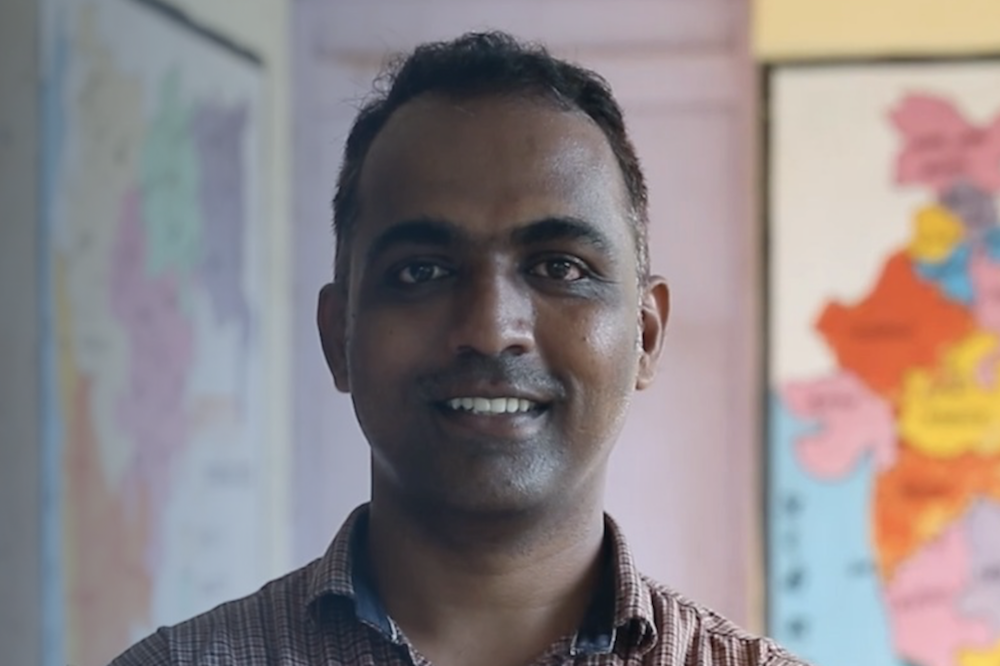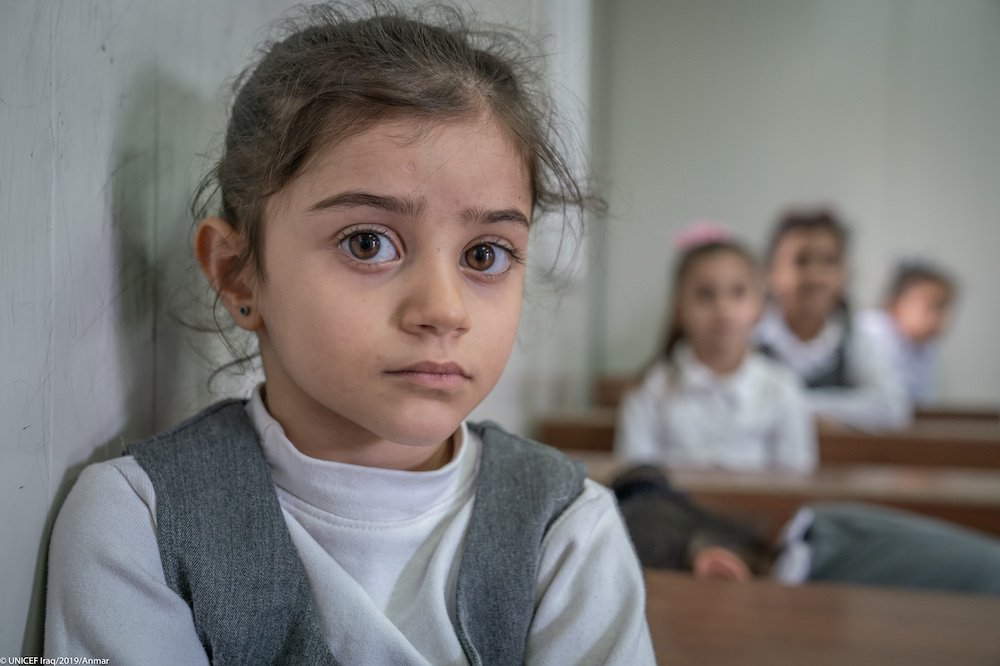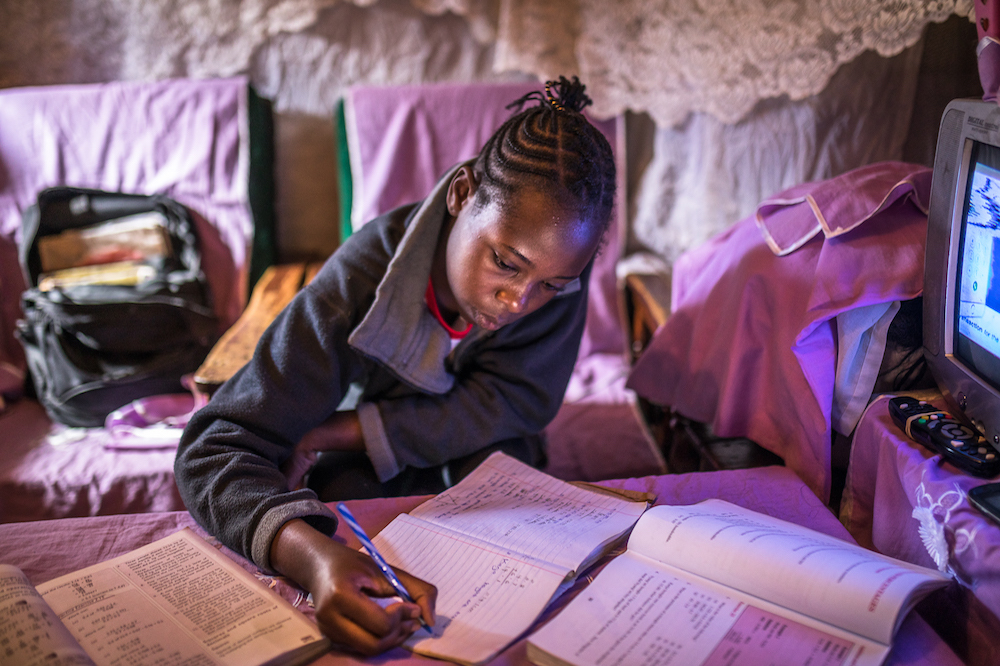
Five things you need to know this week about global education

Teachers and learning
The winner of the Global Teacher Prize got a $1 million prize - and promptly gave half of it away. Find out what he did with it in our news roundup.
Meet the best teacher in the world for 2020
An inspirational primary school teacher who transformed the lives of village girls in India has been named as the winner of the Global Teacher Prize 2020.
Ranjitsinh Disale shocked the other nine finalists by announcing he will share half of his $1 million prize with them – meaning they will receive just over $55,000 each. He was selected from more than 12,000 nominations and applications from over 140 countries in the search to find a teacher who has made an outstanding contribution.
When he arrived at Zilla Parishad Primary School at Solapur in Maharashtra state in 2009, it was a dilapidated building between a cattle shed and a storeroom. Most of the girls were from tribal communities where school attendance was as low as 2% and teenage marriage was common.
Wow! Here’s THE MOMENT Stephen Fry announced Ranjitsinh Disale as the Winner of The Global Teacher Prize 2020! Congratulations Ranjit! Watch here: https://t.co/9t5GXaIJ58 @ranjitdisale @stephenfry #GTP2020 #TeachersMatter #globalteacherprize #India @NHM_London @UNESCO pic.twitter.com/eQjSosGQwY
— Global Teacher Prize (@TeacherPrize) December 3, 2020
Disale moved to the village, learned the language and translated the class text books. He introduced digital learning tools and designed personalised programmes for each student. His system of QR Coded Textbooks is now used across India.
There are now no teenage marriages in the village and there is 100% attendance by girls. In recent annual exams, 85% of his students achieved A grades and a girl from the village has now graduated from university. Learn more about his work in the video below.
Disale said: “The Covid-19 pandemic has exposed education and the communities it serves in a multitude of ways. But in this hard time, teachers are giving their best to make sure every student has access to their birthright of a good education.
“Teachers are the real changemakers who are changing the lives of their students with a mixture of chalk and challenges. They always believe in giving and sharing.”
The online ceremony broadcast from London also featured a special $45,000 Covid Hero Award. It went to British maths teacher Jamie Frost from Kingston-upon-Thames, whose free DrFrostMaths became a lifeline for students shut out of classrooms around the world.
Previous winners of the Global Teacher Prize include 2019’s Peter Tabachi – a Franciscan friar and teacher at a poorly-equipped school in rural Kenya, who gave away 80% of his monthly income to help the community – and Andria Zafirakou, who won in 2018 for her work at an inner-city London school.
Iraqi schools reopen after eight months

Iraqi schools have opened their doors with social distancing rules in place (UN Photo)
Ten million children in Iraq can start to return to school after classrooms reopened for the first time since lockdown began in late February.
The country’s public schools are set to open six days a week to ensure social distancing. Primary school students will attend classes one day a week and older students on two days, with the remainder of learning being done online.
Sweden’s high schools will switch to distance learning from Monday for the rest of the term – but Austria’s primaries will reopen on that day. The World Health Organization’s European office is planning a meeting next week with the health ministers of its 53 member states to look into how to protect schools – including alternating classes.
The United States’ largest school system will begin to reopen in-person classes on Monday. New York City will start with elementary schools for students whose parents agree to a weekly testing regimen. Mayor Bill de Blasio said: “It’s a new approach because we have so much proof now of how safe schools can be.”
Lack of internet at home a global problem

Sheila Achieng doing her studies at home in Kibera. Once every week her teacher sends her revision questions via her parents phone (UNICEF / Otieno)
Two-thirds of the world’s preschool and school-age children have no internet connection in their homes. That affects 1.3 billion children aged three to 17, according to a new report from UNICEF and the International Telecommunication Union.
The picture is very similar for young people aged 15 to 24, with 63% of them not connected at home.
In low-income countries, fewer than one in 20 school-age children have internet connection at home, compared with nearly nine in 10 from high-income countries. Among school-age children from the richest households globally, 58% are connected, compared with only 16% from the poorest households.
“That so many children and young people have no internet at home is more than a digital gap – it is a digital canyon,” said UNICEF Executive Director Henrietta Fore. “Lack of internet access is costing the next generation their futures.”
Deaf children need support at school
‘’The vast majority of #deaf children who start primary school do so with very little language – as a consequence learning to read and write becomes a huge challenge.’’ #UnheardChildren pic.twitter.com/NhemUSwVib
— Deaf Child Worldwide (@DeafChildWW) December 1, 2020
The rights of deaf children in developing countries – including access to education – is examined in a major new report from Deaf Child Worldwide.
The majority of the world’s 34 million deaf children live in developing countries. Unheard Children looks at why it is so important for them to acquire language and communication skills and crucial they have the right support at school to enable them to learn.
Deaf Child Worldwide said governments and agencies must invest in training teachers to equip them with the skills and knowledge needed to teach deaf children.
In a foreword to the report, Gordon Brown, the UN Special Envoy for Global Education, said: “40% of children with disabilities in developing countries are not even attending primary school – and this important report reminds us of the pervading link between poverty and deafness which continues to hold so many back.”
Hope for Venezuelan refugee children
#EducationCannotWait approves $27.2M in multi-year education in emergency & protracted crisis responses for Venezuelan refugee, migrant & host community girls/boys in #Colombia #Ecuador & #Peru to ensure continued access to inclusive, equitable, quality education! @yasminesherif1 pic.twitter.com/NBgnB1dkk3
— Education Cannot Wait (@EduCannotWait) December 3, 2020
More than 350,000 children and youth will be reached by new investment grants of $27.2 million from Education Cannot Wait (ECW) to help in the Venezuelan refugee crisis.
They will fund multi-year programmes in Colombia, Ecuador and Peru, where large numbers of children and their families have fled from violence and instability.
“The dire situation in Venezuela has tragically forced approximately five million refugees and migrants outside their country of origin – and millions of girls and boys out of their schools – to seek safety in other countries in the region,” said ECW Director Yasmine Sherif.
The grants will catalyse other funding from partners, the private sector and philanthropic foundations. As well as Venezuelan refugees, the programmes will ensure children and youth from host communities also receive inclusive, quality education.
More news

